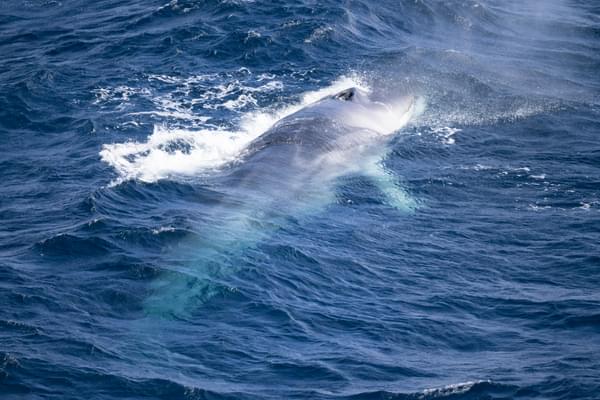Only last week, we were writing in defence of the International Whaling Commission (IWC) as an organization that serves a crucial function protecting whales and dolphins globally. Long may it continue to do that. But there is an inescapable truth that over the years it has been subject to what can only be described as undue and unfair external leverage from powerful vested interests. And now it seems to be happening all over again.
If we wind the clock back to 2002, The Guardian reported that pro-whaling Japan had been providing millions of pounds in aid to dozens of small and impoverished countries, some of which have subsequently joined the IWC and supported the resumption of whaling.
But even that wasn’t the start of this. The Japanese long-game began shortly after the original whaling moratorium was agreed in the 1980s. A string of large aid packages was agreed with tiny island states, principally in the Caribbean. By the late 1990s, six Caribbean nations began to vote in a bloc with the whaling nations, Japan and Norway.
The Guardian continued “But the true extent of the current Japanese aid for votes campaign has never been made public. Having sewn up six votes in the Caribbean and spent £7m persuading the Solomon Islands in the Pacific, Japan expanded its operations. In 2000 Guinea, and last year (2001) Panama and Morocco - both large scale recipients of aid packages - joined the pro-whaling block. Cape Verde and Benin have now become members, Gabon and Senegal have lodged papers - all after inducements - and more African nations are expected to apply.”
Next week the IWC is meeting in Peru, and its current chair is none other than Guinea, a country which has had its fair share of aid funding from Japan in recent years (£14.3 million in 2016 alone).
Along with a host of other west and central African countries, Guinea has submitted a motion calling for the international whaling moratorium to be overturned so as to “..address food insecurity..” , not that whale meat has ever provided any sort of food security to any of these countries previously.
What these countries didn’t foresee was the outpouring of indignation from 111 of their own conservation experts, including government officials and academics who in a joint letter have roundly condemned the hypocrisy of their Governments holding national policies and positions on marine conservation which this motion completely undermines.
Their letter demands that “..the representatives to the IWC from Benin, the Republic of Congo, Côte d’Ivoire, Gambia, Ghana, Guinea-Bissau, the Republic of Guinea, Liberia, Mali, Mauritania, Sao Tome and Principe, Senegal and Togo… desist from taking positions that are contradictory to their own national laws and the pro-conservation positions we take in other multilateral fora and damage our global reputation.”
Many African-based individuals and organisations involved in conservation are dependent on good relations with their national governments and even if they disagree with policies, they bite their lip and stay quiet. So this letter marks quite a departure from that previous stance. But there have been signs of growing frustration amongst the African conservation community that their hard-won successes get undermined by international deals and decisions being made by officials without involving them at all. The over-utilisation of Africa’s natural resources for profit by individuals, companies and countries is all too familiar, but this resounding message from people whose work will be negatively impacted by any resumption of whaling, is a welcome intervention that simply cannot be ignored.

ORCA's work to protect whales and dolphins has never been more important and to help safeguard these amazing animals for the future we need your help. Please support our work by donating at www.orca.org.uk/donate to help us create oceans alive with whales and dolphins

